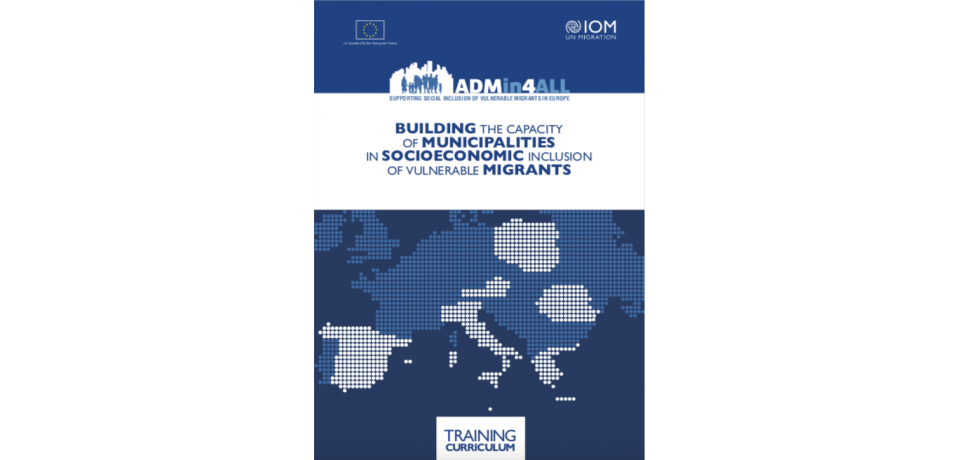IOM ADMin4ALL Training Curriculum for Building the Capacity of Municipalities in Socioeconomic Inclusion of Vulnerable Migrants
Related Sustainable Development Goals and Global Compact for Migration Objectives
This Training Curriculum for Building the Capacity of Municipalities in Socioeconomic Inclusion of Vulnerable Migrants has been developed under the project “ADMin4ALL: Supporting Social Inclusion of Vulnerable Migrants in Europe”, funded by the European Union (EU) and implemented by the International Organization for Migration (IOM). It targets municipal staff – working in specialized or generalized services – as well as staff within other entities who are entrusted to deliver services to migrants at the local level.
The content builds on a needs-assessment conducted under Phase 1 of the ADMin4ALL project as well as on feedback collected from municipal staff following an initial roll-out of the training. Because of its modular design, the curriculum is flexible and can serve as a useful basis for adaptation to varying national and local contexts.
The manual is structured around two sections:
Part 1 provides an overview of the training curriculum’s content, learning objectives, target audience and format. It further provides training guidelines for trainers wishing to roll-out the training to its end users.
Part 2 delves deeper in the training content itself. It contains the description of each training module, along with recommended teaching, learning and assessment procedures as well as the modules themselves. Each module is supported by key training tools including handout documents to be distributed to training participants.
Overall, the ADMin4ALL Training Curriculum consists of 7 main thematic areas: understanding migration, developing intercultural competences, interacting with migrants, interacting with local community, improving services management, anti-discrimination and conflict management.
